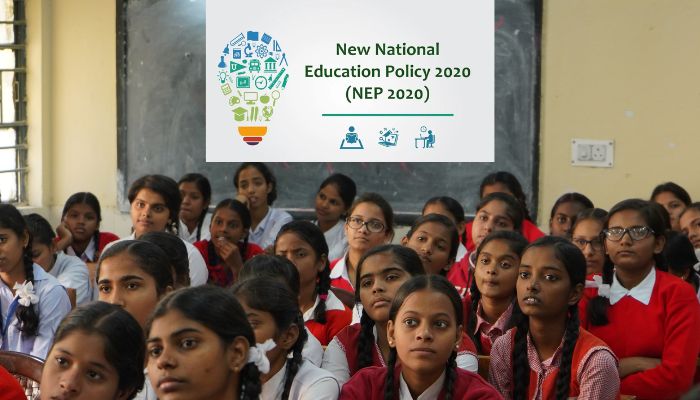With respect to NEP 2020, policymakers should consider granting higher education institutions greater autonomy in selecting ecosystem partners to foster innovation and diversity in educational offerings.
As we commemorate the third anniversary of India’s National Education Policy (NEP), it is a momentous occasion to reflect on its profound influence on the country’s educational landscape. The NEP was introduced with the primary goal of harnessing India’s vast human potential and has set a clear path towards comprehensive and inclusive education. As we look ahead, three crucial areas demand our focus to prepare the nation’s workforce for the rapid changes of the future.
1. Bridging the Skills Gap and Nurturing Job-Ready Professionals
India’s ambition to become the world’s third-largest economy hinges on cultivating a highly skilled workforce. The NEP’s provisions empower academic institutions in India to develop a robust catalog of online offerings, effectively addressing challenges related to teacher shortages and classroom capacities.
The NEP’s emphasis on a multidisciplinary and flexible learning approach is another critical aspect. Encouraging students to explore diverse fields fosters creativity and innovation. These principles are put into practice through the Curriculum and Credit Framework for UG programmes.
2. Accelerating Equity of Learning and Internationalisation of Education
The NEP has made significant strides in narrowing the urban-rural divide and reducing educational disparities. The National Credit Framework has introduced flexible learning paths, enabling students to choose from multiple entry and exit options. By recognizing all forms of learning, the NEP promotes the development of a comprehensive and inclusive education system.
The recent launch of IIT Guwahati’s BSc (Hons) in DS and AI exemplifies a model that other institutions should adopt nationwide. This program rewards continuous learning by offering multiple exit options with industry-recognized credentials for each year of study.
India’s representation in the G20 leadership also highlights its role in advocating for marginalized regions like Africa, Latin America, and the Caribbean. The establishment of the first Indian Institute of Technology (IIT) campus outside the country in Tanzania exemplifies India’s commitment to strengthening educational cooperation with other nations. This initiative is a significant step towards internationalizing Indian education, which is in high demand worldwide, as evidenced by the substantial number of overseas learners pursuing eMBA from IIT Roorkee.
3. Creating a Learning Ecosystem for Working Adults
The era of globalization, automation, and digital transformation calls for reskilling and upskilling opportunities. Industry micro-credentials have emerged as a powerful tool in empowering working adults to swiftly acquire digital skills and transition into higher-paying jobs, adapting to evolving job requirements.
The recent approval of new guidelines by the University Grants Commission (UGC) for University-Industry linkages facilitates universities in offering credits for industry micro-credentials, a successful model in various regions worldwide.
To cater to working adults in the increasingly digital world, a new degree model is needed. Encouraging regulatory bodies like the Bar Council of India, the Dental Council of India, and the National Medical Commission to adopt online education is essential. While the National Digital University is a step in the right direction, opening up to more partners is crucial to enrich the educational experience and provide learners with a wider range of opportunities.
Conclusion: Embracing Transformation and Unlocking the Potential
India stands at the threshold of a major transformation over the next decade, with ambition, talent, and resources to make a global impact. World-class education is at the heart of this progress, serving as the cornerstone of India’s growth. Embracing the measures set forth by the NEP will unlock the potential for a more inclusive and globally connected education system, empowering India’s talent to become the economic engine of the 21st century.

